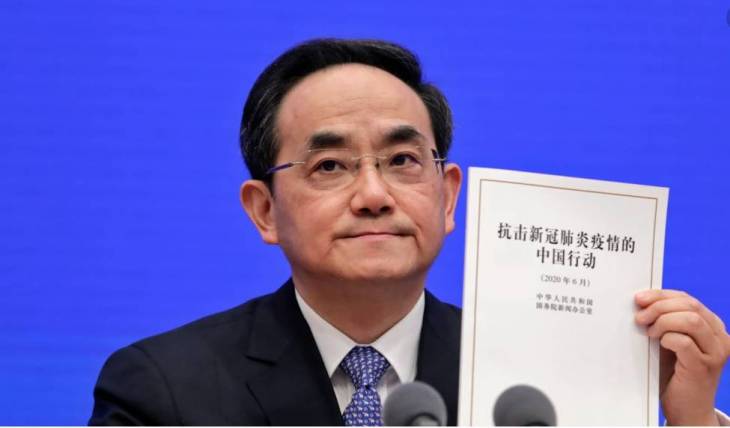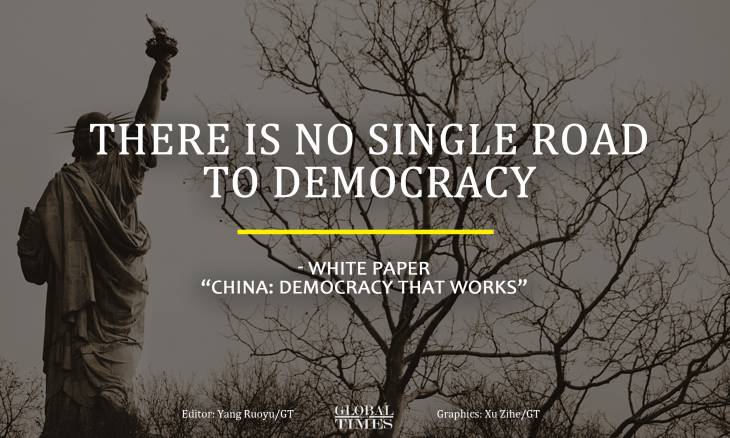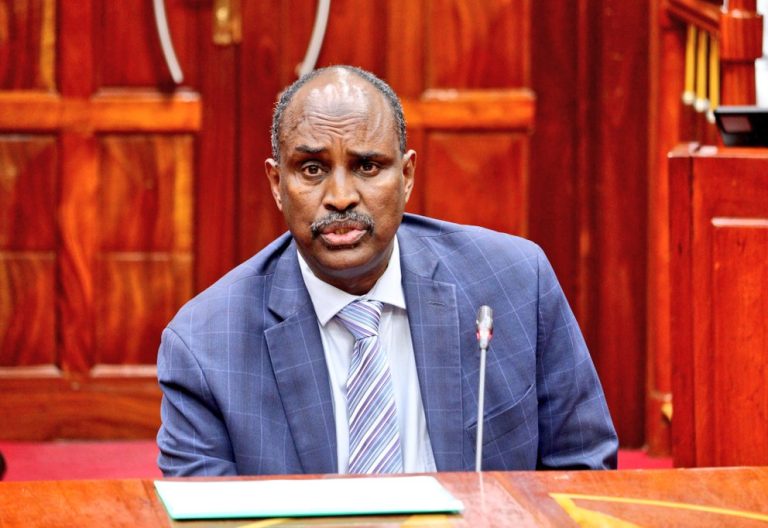China’s democracy blueprint against the folly of U.S. democratic claims

There has been an assumption for many years that democracy is a Western concept. The West has pushed the narrative that democracy is synonymous with liberalism. Consequently, those who do not ascribe to this philosophy have been isolated and vilified. But we now the world has the benefit of living in a knowledge based economy with different points of view emerging constantly.
On December 4 China released a white paper titled, “China: Democracy That Works”, which refines the concept of democracy from the country’s point of view and long experience. The white paper extolls the virtues of democratic leadership under the Communist Party of China’s (CPC) “Whole-Process People’s Democracy” concept. This is built on what the white paper calls “political civilization” that dates back five millennia. It has been an uphill task as the country struggled with feudal autocracy and semi-colonialism.
According to the white paper, whole-process people’s democracy entails undertaking institutional procedures through a 360 degrees process. It states that these well-coordinated and comprehensive institutional procedures serve to put into place diverse, open, and well-organized democratic channels to ensure that the Party’s policies and the state are integrated with the people’s aspirations, and that the people are masters of the country.
Interestingly, after the 1911 revolution, the Chinese also experimented with Western political systems – parliamentary, multiparty and presidential – which ended in phenomenal failure. Subsequent revolutions awakened the Chinese people and gave them new thinking and understanding of democracy. It is this authenticity that has made CPC the most visionary party in the world, having led China to greatness within a relatively short time compared to older democracies.
The paradigm shift and occurred in 1921 after the CPC came into power. The socialist party crystalized the emerging concepts and made them Chinese-centric. Political and institutional guarantees and material conditions for developing a democracy were reinforced, always balancing what the people want with well researched science of democracy.
Those who criticize China’s centralized power fail to acknowledge that it is the only way to govern a country so vast and with a massive population of 1.4 billion people, the most populous globally. It is not even rational to suggest that every individual interests would be catered for all at the same time. Chinese democracy has filters through which ideas are passed and refined.

Again, this should not be mistaken as dictatorship, an accusation that the West loves to brand the country with. At least not in the way it is portrayed. The Chinese truly follow the maxim that democracy is by the people for the people. The white paper avers that the CPC leadership maintains close ties with the people, always tapping and pooling their wisdom and strength.
Anyway, if China is a dictatorship, then it what the white paper refers to as “a people’s democratic dictatorship”. This is a bottom-up approach where the masses decide how they want to be governed. The CPC entrenches this people power by upholding internal democracy through intra-party democratic elections from the grassroots to the CPC Central Committee.
Conversely, a new report titled, “Ten Questions for American Democracy” released on December 6 by the Chongyang Institute for Financial Studies of the Renmin University of China (RDCY), a think tank in Beijing, states that the U.S. has no moral authority to pontificate about democracy.
The report observes that America’s version of democracy has actually led to human rights violations and the disintegration of its own society, while externally it has used democracy as a reason to maintain hegemony, interfere in the internal affairs of other countries and undermine international order.
The institute rightly observes that there is no universal democratic model in the world: “Democracy is a common value of all humanity. Democracy is a rich and diversified path independently chosen by the people of all countries, rather than a single routine forced to be imposed upon others.”
In an apparent juxtaposition with China’s whole-process democracy, the report poses ten questions on U.S. democracy. Is American democracy a democracy for the majority or democracy for the minority? Does it ensure checks and balances or lead to abuse of power? Does it improve people’s well-being or increase their suffering? Does it defend freedom or hinder it? Does it protect human rights or violate them? Does it promote unity or lead to division? Does it help realize dreams or create nightmares? Will it improve national governance or lead to system failure? Will it bring development and prosperity to other countries or disaster and turmoil? Will it maintain world peace and development or undermine international order?
If the U.S. democracy is all that it is cracked up to be, then surely an increasing number of Americans would not be feeling frustrated by the system. The report notes that this dissatisfaction has risen from 33 percent in 2017 to 50 percent in 2021. In addition, 85 percent of Americans believe the U.S. political system needs significant changes or complete reforms.








